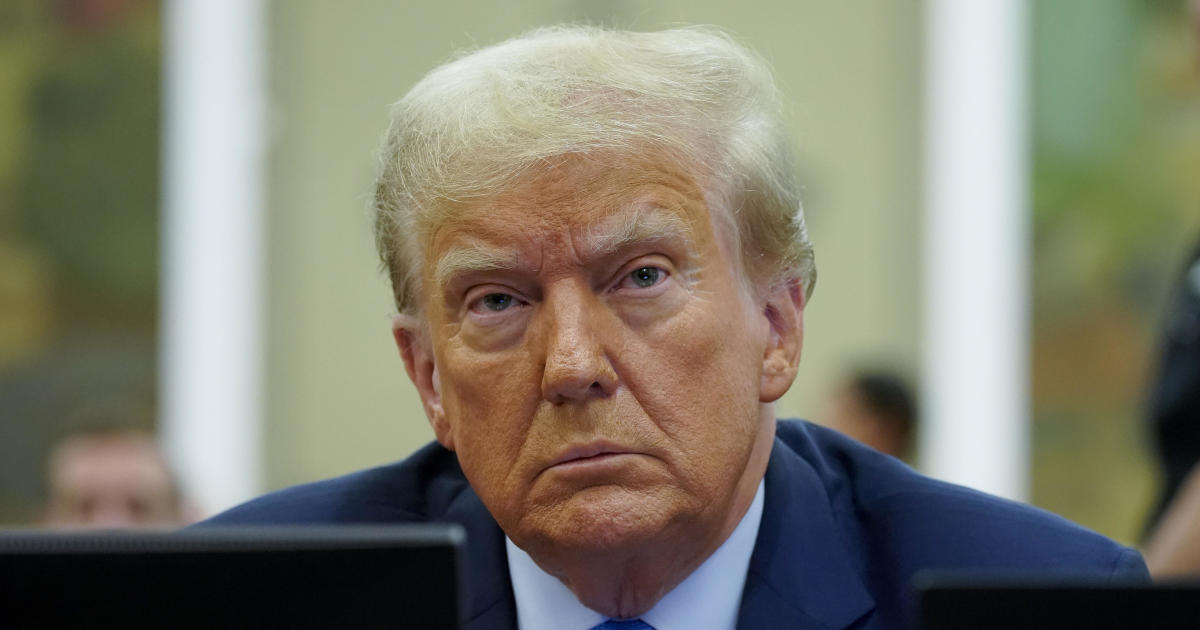Former President Donald Trump appeared in a New York courtroom on Monday for his testimony in a high-profile fraud trial that could determine the future of his business empire. However, Trump’s early testimony was marked by his tendency to stray from the questions asked by a lawyer from the New York Attorney General’s office. He also stood by the valuations of his properties that are at the center of the case, defending financial statements that his co-defendants have distanced themselves from.
In one exchange, Trump confidently stated that the numbers reflecting his net worth are significantly higher than those stated in the financial statements provided by the lawyer, effectively claiming that the case against him is baseless. While under oath, he took the opportunity to criticize the New York Judge Arthur Engoron, who is presiding over the civil case and will ultimately decide its outcome. Trump expressed his belief that the judge will rule against him, as he has done in the past.
As Trump continued to give lengthy responses regarding the valuations of his properties, Judge Engoron’s patience began to wear thin. One of Trump’s attorneys suggested that the judge allow Trump to answer questions in his own way, prompting some laughter in the courtroom. However, Engoron’s frustration escalated, and he firmly stated that he was not interested in hearing Trump’s opinions, but rather his direct answers. He warned Trump that he would draw negative conclusions from his testimony and excuse him if necessary.
This trial stems from a $250 million civil lawsuit filed by the New York Attorney General’s office, which accuses Trump, his two eldest sons, the Trump Organization, and several executives of a fraudulent scheme to inflate the value of their assets for better loan and insurance terms. Trump and his co-defendants have denied any wrongdoing and have consistently claimed that the case is politically motivated.
The trial is of significant public interest, but cameras are not allowed in the courtroom. CBS News has reporters present to witness and report on Trump’s testimony as it unfolds. Trump’s arrival before the trial was accompanied by his remarks reiterating his criticism of the trial, referring to it as a “terrible, terrible thing” orchestrated by political operatives. However, the New York Attorney General, Letitia James, emphasized that only the facts and numbers matter in this case.
During his testimony, Trump referred to Letitia James as a “political hack” and accused her of leading a political witch hunt. Attorney Kevin Wallace, representing the state, began his questioning by inquiring about a trust that Trump established to manage his assets before his presidency. Trump explained that he relinquished control of the trust due to the increasing legal pressure he faced from various Democratic district attorneys, attorneys general, and U.S. attorneys.
After a break, Wallace continued his line of questioning, focusing on the valuations of Trump’s properties, including Mar-a-Lago, Trump Tower, and Seven Springs. Trump defended the financial statements in question, asserting that even those identified as inflated were undervalued. He also stated that he would not sell certain properties due to their perceived high value. Trump claimed that disclaimers included in the documents absolved him of any responsibility for inaccuracies, stating that these disclaimers typically hold up in court, except, perhaps, in this particular court.
Trump grew particularly animated when discussing Mar-a-Lago, stating that he believes it could be worth as much as $1.5 billion. However, legal experts have previously noted that the property’s value is limited due to deed restrictions that prevent it from being used as a residence. In response, Trump explained that he agreed to the deed restriction for tax purposes, as it lowers the property’s assessed value and, consequently, its tax burden. He further emphasized the advantages of designating the property as a club and using a hypothetical scenario to illustrate potential tax savings.
Throughout his testimony, Trump gesticulated with his hands and engaged in back-and-forth exchanges with Judge Engoron. At one point, he attempted to read from a folded sheet of paper he claimed was related to a disclaimer, but the judge intervened and denied his request. This led to a reaction from Trump, expressing shock at the judge’s decision.
Later in the day, Trump acknowledged that a loan related to his Chicago property had been paid off “very recently” instead of being “long since gone,” as he previously stated. When confronted with this discrepancy, he attributed the mistake to his son Eric Trump, who recommended the loan’s payoff.
The trial against Trump and his co-defendants alleges that they engaged in a scheme to present false information about their wealth, resulting in more favorable loan and insurance terms. The judge has already found them liable for fraud, determining that this scheme led to significant unearned profits. The trial is ongoing and covers other allegations, including falsification of business records, conspiracy, and insurance fraud. It will also determine the amount of “ill-gotten gains” that the Trumps must pay to the state.
Donald Trump Jr. and Eric Trump have already testified in the case, and Ivanka Trump is scheduled to take the stand on Wednesday. Although Monday marked Trump’s first testimony related to fraud, he has previously been involved in legal proceedings.


